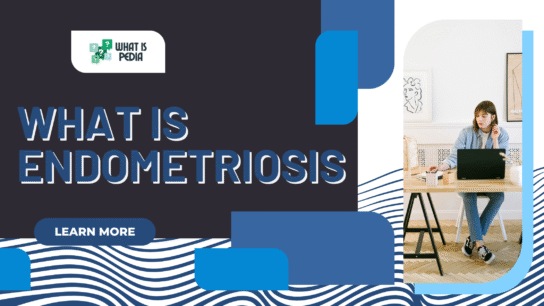The Combined Defence Services (CDS) exam is one of the most prestigious competitive examinations conducted by the Union Public Service Commission (UPSC) in India. It serves as a gateway for aspirants who dream of serving in the Indian Armed Forces, including the Indian Army, Indian Navy, and Indian Air Force. Held twice a year, the CDS exam not only evaluates a candidate’s academic and intellectual capability but also tests their commitment, discipline, and physical fitness—qualities essential for a career in the defence services.
In this comprehensive blog, we will break down everything you need to know about the CDS examination, its purpose, eligibility criteria, the recruitment process, and how you can start preparing for a career in one of the most respected services in the country.
What is Combined Defence Services (CDS)?
The Combined Defence Services (CDS) exam is a national-level recruitment examination conducted by the UPSC for the selection of candidates into:
-
Indian Military Academy (IMA), Dehradun
-
Indian Naval Academy (INA), Ezhimala
-
Air Force Academy (AFA), Hyderabad
-
Officers Training Academy (OTA), Chennai
The CDS exam aims to recruit officer-level personnel into these elite academies, which provide rigorous training before commissioning cadets into the permanent or short service commissions of the armed forces.
Purpose of the CDS Examination
The primary purpose of the CDS exam is to:
-
Identify leadership potential in young graduates.
-
Select physically and mentally capable individuals for officer training.
-
Ensure candidates are nationally competent, disciplined, and motivated to serve.
-
Provide an entry point into multiple branches of the Armed Forces in a structured, merit-based manner.
Unlike many other government jobs, a career through CDS is about duty, honor, and service to the nation, making the exam not just a test of knowledge, but a test of one’s character and resolve.
Eligibility Criteria for CDS
1. Nationality
A candidate must be:
-
A citizen of India, or
-
A subject of Nepal or Bhutan, or
-
A Tibetan refugee who came to India before January 1, 1962 with the intention of permanently settling in India, or
-
A person of Indian origin who has migrated from Pakistan, Burma, Sri Lanka, and East African countries (such as Kenya, Uganda, etc.), intending to permanently settle in India.
2. Educational Qualification
-
IMA & OTA: A Bachelor’s degree (any stream) from a recognized university.
-
INA: A Bachelor’s degree in Engineering from a recognized university/institution.
-
AFA: A Bachelor’s degree with Physics and Mathematics at 10+2 level, or a Bachelor’s degree in Engineering.
Note: Final year students are also eligible, provided they produce proof of qualification during the SSB interview.
3. Age Limit
-
IMA: 19–24 years
-
INA: 19–24 years
-
AFA: 20–24 years
-
OTA (Men): 19–25 years
-
OTA (Women, Non-Technical): 19–25 years
Married candidates are eligible only for OTA. Candidates applying for IMA, INA, or AFA must be unmarried.
4. Physical Standards
Candidates must be:
-
Medically fit as per the standards set by the respective academies.
-
Free from any condition that hampers the ability to undergo rigorous training.
-
Specific height and weight requirements apply based on gender and age.
Structure of the CDS Examination
The CDS exam is objective in nature and comprises multiple papers depending on the chosen academy.
For IMA, INA, and AFA:
| Paper | Subject | Duration | Marks |
|---|---|---|---|
| Paper I | English | 2 hours | 100 |
| Paper II | General Knowledge | 2 hours | 100 |
| Paper III | Elementary Mathematics | 2 hours | 100 |
For OTA (Men and Women):
| Paper | Subject | Duration | Marks |
|---|---|---|---|
| Paper I | English | 2 hours | 100 |
| Paper II | General Knowledge | 2 hours | 100 |
Mathematics is not included for OTA aspirants.
Negative Marking:
There is a penalty for incorrect answers. One-third of the marks assigned to that question are deducted for every wrong answer.
Syllabus Overview
English:
-
Reading Comprehension
-
Vocabulary
-
Sentence Improvement
-
Error Spotting
-
Antonyms/Synonyms
General Knowledge:
-
Current Affairs (National & International)
-
History of India
-
Geography
-
Indian Polity
-
Economics
-
Science and Technology
Mathematics:
-
Algebra
-
Trigonometry
-
Geometry
-
Mensuration
-
Statistics
-
Arithmetic
Recruitment Process
Once candidates qualify for the written examination, they move on to the next crucial phase:
1. SSB Interview (Services Selection Board)
The SSB interview is a five-day personality assessment process consisting of:
-
Screening Tests
-
Psychological Tests
-
Group Testing Officer Tasks (GTO)
-
Personal Interview
-
Conference
Candidates are evaluated for intellectual, psychological, and physical potential, and whether they demonstrate Officer-Like Qualities (OLQs) such as leadership, responsibility, teamwork, and resilience.
2. Medical Examination
Shortlisted candidates must undergo a comprehensive medical check-up at a designated military hospital to ensure fitness for service.
3. Final Merit List
A merit list is prepared based on the combined scores of the written test and SSB interview. Only those who qualify in both phases and meet medical standards are admitted to the respective academies.
Training and Commissioning
After selection, candidates undergo rigorous training at:
-
IMA (Dehradun) – For Permanent Commission in the Army
-
INA (Ezhimala) – For Permanent Commission in the Navy
-
AFA (Hyderabad) – For Permanent Commission in the Air Force
-
OTA (Chennai) – For Short Service Commission (both Men and Women)
Upon successful completion of training, cadets are commissioned as officers and begin their official journey in the Indian Armed Forces.
Career Growth and Opportunities
A career through CDS offers:
-
Job Security and Prestige
-
Attractive Salary and Allowances
-
Travel and Adventure
-
Promotions and Postings Abroad
-
Post-Retirement Benefits
-
Respect and Honor in Society
Officers can rise to top ranks such as Colonel, Brigadier, Major General, or even Chief of Army/Navy/Air Staff, depending on their performance and service record.
How to Prepare for the CDS Exam?
1. Understand the Syllabus and Pattern
Before starting preparation, go through the detailed syllabus and previous year papers to understand the types of questions asked.
2. Create a Study Plan
Dedicate at least 6–8 months of focused study time. Allocate time for:
-
English Grammar and Reading Practice
-
Current Affairs and GK Revision
-
Daily Mathematics Problem Solving
3. Refer to the Right Study Material
Some recommended books include:
-
Pathfinder by Arihant
-
Manorama Yearbook
-
NCERT Books (6–10 for History, Geography, and Science)
-
Wren and Martin for English Grammar
4. Solve Mock Tests and Previous Papers
Regularly attempt mock tests, take part in online quizzes, and solve past papers to improve speed and accuracy.
5. SSB Interview Preparation
Work on:
-
Communication and Personality Development
-
Physical Fitness
-
Group Discussion and Psychological Tests
Joining a reputed SSB coaching institute or practicing with mock interviews can be helpful.
Final Thoughts
The Combined Defence Services (CDS) examination is not just a test—it is the first step in a transformative journey. It’s about choosing a life of service, discipline, honor, and pride. For those who dream of donning the uniform and serving the nation with courage and commitment, CDS provides the ideal platform.
With determination, hard work, and a clear understanding of the process, any aspirant can conquer the CDS exam and pave their way to becoming a proud officer in the Indian Armed Forces.
FAQs
1. Can women apply for CDS?
Yes, women can apply for OTA (Short Service Commission) through CDS.
2. How many times is the CDS exam conducted each year?
The exam is held twice a year, usually in February and September/November.
3. Is there negative marking in CDS?
Yes, one-third of the marks are deducted for each incorrect answer.
4. Is coaching necessary for CDS preparation?
While not mandatory, self-study with discipline is enough. Coaching can help if you need structured guidance or are preparing for the SSB interview.
To understand how physical harm is legally defined and prosecuted, read our detailed explanation on what is corporal injury and its implications under criminal law.







